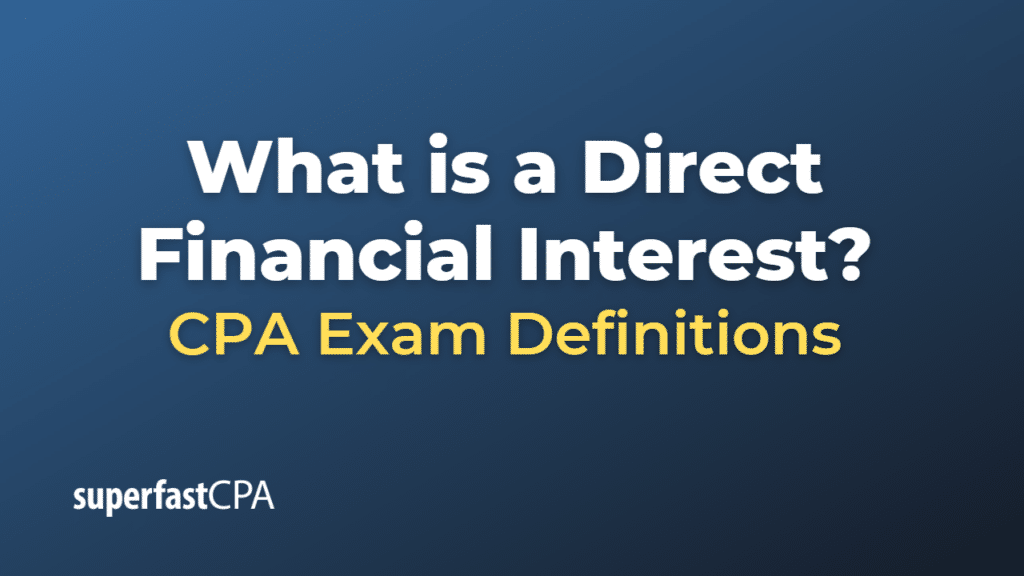Direct Financial Interest
Direct financial interest refers to the ownership of a substantial amount of stock or securities in a company or a vested interest in the financial performance of a company. It can also mean holding a stake in a company through investment vehicles, such as mutual funds, pension funds, and other investment accounts.
This concept is important in various contexts like finance, law, corporate governance, and ethics. For instance, it is often considered a conflict of interest for an auditor to have a direct financial interest in a client company because it could potentially impair the auditor’s objectivity and independence.
It’s also worth noting that regulations and ethical guidelines often require individuals to disclose any direct financial interests they have in a particular matter to avoid conflicts of interest. For instance, a doctor who holds a significant amount of stock in a pharmaceutical company would typically need to disclose this if they were part of a panel deciding whether to recommend that company’s drug.
In summary, a direct financial interest means a direct stake or investment in a company that could influence an individual’s decisions or actions. It is typically considered a conflict of interest in professional settings and must be disclosed.
Example of a Direct Financial Interest
Let’s consider a hypothetical situation involving a business executive.
Imagine that Jane, a high-ranking executive at an automotive company, also holds a significant number of shares in an energy company that specializes in electric vehicle (EV) charging solutions. In her role at the automotive company, Jane is involved in strategic decisions about the direction of the company’s future vehicle development.
Now, suppose that the automotive company is considering two main pathways: 1) to continue focusing on gasoline-powered vehicles, or 2) to shift toward electric vehicles. If the company goes down the electric vehicle pathway, it’s likely that the energy company’s stock price will rise because the energy company stands to benefit from increased demand for EV charging solutions.
In this case, Jane has a direct financial interest in the energy company. This could potentially bias her decision-making process, consciously or unconsciously. She may push for the shift to electric vehicles not purely based on what she believes is best for the automotive company, but also because she stands to personally profit if the energy company’s stock price rises.
This is a conflict of interest, and Jane should disclose her direct financial interest in the energy company to her fellow executives and potentially recuse herself from decisions that involve the strategic direction of the company’s vehicle development.













